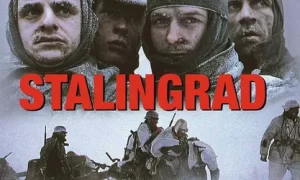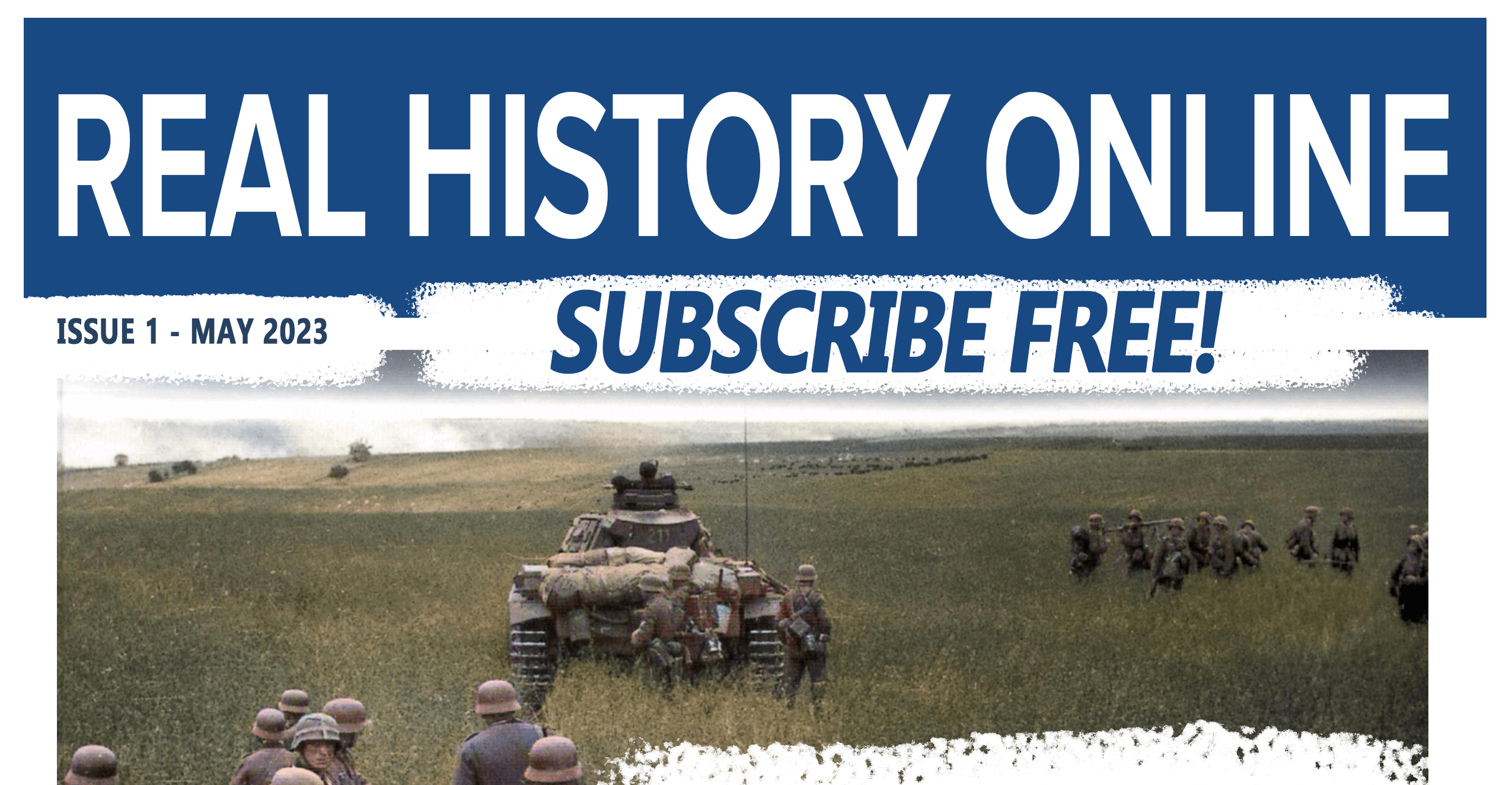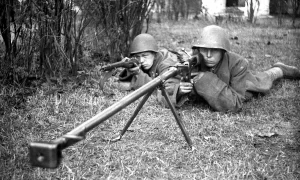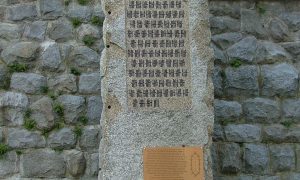Completion of a fundamental change in the course of the war
The victory in the Battle of Stalingrad determined the transition of the Red Army from defense to a strategic offensive. In winter – spring 1943, the Red Army developed success, breaking the blockade of Leningrad, launching an offensive in the North Caucasus and in the upper reaches of the Don. However, the Germans managed to carry out a successful counterattack and again capture Kharkov in March 1943. After the Battle of Kursk, the strategic initiative firmly passed into the hands of the Soviet command. Left-bank of Ukraine and the city of Kiev was liberated. This period of the war was called a critical turning point.
The victory at the Kursk Bulge and the subsequent strategic offensive according to the plan for the summer-autumn campaign of 1943 marked the end of the turning point in the course of the Great Patriotic War and, as a consequence, in the Second World War. After the end of the battle on the Kursk Bulge, the German command lost the ability to conduct strategic offensive operations.


Zhukov G.K. noted:
“Irritated by failures and extremely heavy losses, Hitler, as he always did in such cases, shifted all the blame for the failure of the offensive operation Citadel onto the heads of his field marshals and generals. He removed them from their posts, replacing, in his opinion, more capable ones. Hitler did not understand that the failure of a major strategic operation depends not only on the commanders, but is mainly determined by a large sum of military-strategic, political, moral and material factors.”
The opinion of the allies of the USSR on the anti-Hitler coalition
The Committee of the Chiefs of Staff of the United States in August 1943 prepared an analytical document in which it assessed the role of the USSR in the war. “Russia occupies a dominant position in the Second World War,” the report noted, “and is a decisive factor in the forthcoming defeat of the Axis countries in Europe. While in Sicily two German divisions are confronted by the troops of Great Britain and the United States, the Russian front is chaining about 200 German divisions. When the allies open a second front on the continent, it will undoubtedly be secondary in comparison with the Russian front, the Russian will continue to play a decisive role”. Further, it was concluded that:
“The main military operations will be conducted in Russia. Without Russia’s participation in the war in Europe, it is impossible to defeat the Axis countries, and the position of the United Nations will turn out to be dangerous “
President Roosevelt was aware of the danger of further postponement of the second front. He told his son on the eve of the Tehran conference:
“If things in Russia continue as they do now, then it is possible that next spring there will be no need for a second front!”
– E. Roosevelt. Through His Eyes. – M., 1947.– S. 161.
Confessions of German generals
Field Marshal Erich von Manstein, who designed and carried out Operation Citadel, later wrote:
She was the last attempt to keep our initiative in the East. With her failure, tantamount to failure, the initiative finally passed to the Soviet side. Therefore, Operation Citadel is a decisive turning point in the war on the Eastern Front.
– Manstein E. Lost Victories / Per. with him. – M., 1957.– S. 423.

According to Guderian,
As a result of the failure of the Citadel offensive, we suffered a decisive defeat. The armored troops, replenished with such great difficulty, were incapacitated for a long time due to heavy losses in people and equipment. Their timely restoration to conduct defensive operations on the Eastern Front, as well as to organize defense in the west in case of the landing, which the Allies threatened to land next spring, was called into question. Needless to say, the Russians were quick to use their success. And there were no more calm days on the Eastern Front. The initiative passed completely to the enemy.
– Guderian G. Memoirs of a Soldier. – Smolensk: Rusich, 1999
Assessment of Albert Speer, Reich Minister of Armaments and War Production:
The offensive began on July 5, but, despite the widespread use of the latest military equipment, we did not succeed in cutting off the Kursk salient and encircling Soviet troops. Excessive self-confidence once again let Hitler down, and after two weeks of fierce fighting, he was forced to admit the futility of his hopes. The unsuccessful outcome of the Battle of Kursk meant that henceforth the Soviet Union seized the strategic initiative even at a favorable time of the year for us.
– Speer A. Memories / [Per. with him. S. Fridlyand; I. Rozanova]. – 2nd ed., Rev. – M.: Zakharov, 2010.– 688 p.
…
Disruption of further plans of the German command
Operation Citadel was the first of the Wehrmacht’s planned operations for the summer and autumn of 1943, which made it possible to go deep into the rear of the Soviet troops and create a threat to Moscow. On March 22, Hitler gave the order to carry out Operation Hawk, but the prospects that were opening up, if successful, after two days forced to instruct GA South to develop a larger operation, code-named Panther.
The success of operations Citadel and Panther was supposed to be the signal for the start of the German offensive on Leningrad. The operation was originally codenamed Berenfang (Bear Hunt). The first stage was named “Parkplatz-I”, the second – “Parkplatz-II”. About the planned occupation of Sweden notes the American historian M. Kaydin:
“Much more was at stake than just the city of Kursk or the advancement of the terrain to the north, south and east, but something that would never be reflected in the diagrams and maps – a merciless reprisal against the Russians, and this was the essence of German plan: harass, grind, disperse, kill and capture… Later, if Operation Citadel proceeds as Hitler had hoped, a major new offensive on Moscow would follow. Later, he will put into practice his top secret plan “Arctic fox”, and the German armed forces with a lightning strike occupy Sweden. Later he… will strengthen the troops in Italy to repel the Allied invasion and throw them into the sea, for he knew that the time of this invasion was approaching. Send powerful reinforcements to the Atlantic Wall, perhaps sufficientto break the back of the invasion forces from England… It was not only the Russian fate, which had to be decided at Kursk, but the fate of the war itself “
– quoted by: Caidin. M. The Tigers Are Burning. New York: Hawthorn, 1974, p. 4, 5, 8.
The victory of the Red Army at Kursk and the troops of the anti-Hitler coalition in Sicily made the plans of the German command unrealizable.
The international significance of the victory in the Battle of Kursk
As a result of the defeat of significant Wehrmacht forces on the Soviet-German front, more favorable conditions were created for deploying the actions of the American-British troops in Italy, the beginning of the collapse of the fascist bloc was laid – the Mussolini regime collapsed, and Italy withdrew from the war on the side of Germany. Influenced by the victories of the Red Army, the scale of the resistance movement in the countries occupied by German troops increased, the prestige of the USSR as the leading force of the anti-Hitler coalition strengthened.
In the Battle of Kursk, Soviet soldiers showed courage, resilience and mass heroism. According to the IVI VA of the General Staff of the RF Armed Forces:

More than 100 thousand people were awarded orders and medals, 231 people were awarded the title of Hero of the Soviet Union, 132 formations and units received the rank of guards, 26 were awarded the honorary titles of Oryol, Belgorod, Kharkov and Karachevsky.
Supreme Commander-in-Chief I. V. Stalin, summing up the results of the summer-autumn campaign in a report on November 6, 1943, noted :
“… the results and consequences of the victories of the Red Army went far beyond the boundaries of the Soviet-German front, changed the whole further course of the world war and acquired great international significance. The victory of the Allied countries over the common enemy approached, and the relations between the Allies, the military community of their armies, contrary to the expectations of the enemies, not only did not weaken, but, on the contrary, became stronger and stronger… the Allies subjected and continue to subject the important industrial centers of Germany to weaken the military power of the enemy… they regularly supply us with various weapons and raw materials… it can be said without exaggeration that with all this they greatly facilitated the successes of our summer campaign “
The geopolitical success of the 1943 summer / fall campaign
The victory in the Battle of Kursk made it possible to launch a broad offensive according to the plan of the summer-autumn campaign, while liberating a significant territory.
G.K. Zhukov notes:
The battle in the region of Kursk, Orel and Belgorod is one of the greatest battles of the Great Patriotic War and World War II in general. Here, not only the best and most powerful groups of the Germans were defeated, but also the belief in the Nazi Nazi leadership and in Germany’s ability to withstand the ever-increasing power of the Soviet Union was irretrievably undermined in the German army and people.














